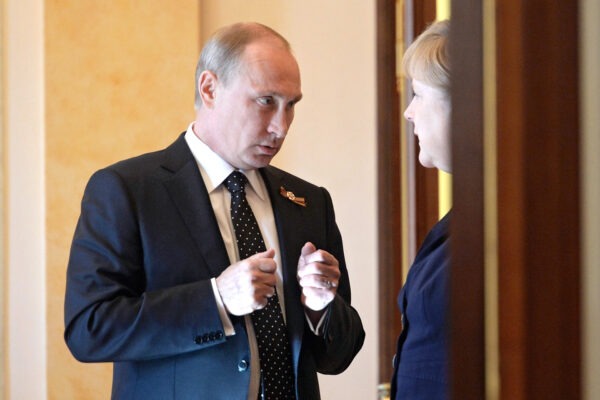
Pressure is mounting on Chancellor Angela Merkel to cancel the almost-completed Nord Stream 2 pipeline, which could double Russian gas exports to Germany.
Merkel has accused the Russian government of poisoning opposition leader Alexei Navalny, who is recuperating in a Berlin hospital.
The obvious response, her critics say, would be to withdraw from a €10 billion project that makes Germany — Europe’s largest gas importer — more dependent on Russia.
Opposition
- Bild, Germany’s top-selling tabloid, urges the chancellor to pull the plug on what it calls the “Putin pipeline”.
- Norbert Röttgen, the chairman of the foreign affairs committee in the German parliament and one of the three men vying to succeed Merkel as Christian Democratic party leader, argues that not canceling Nord Stream 2 “would be a complete vindication for Vladimir Putin.”
- Katrin Göring-Eckardt, one of the leaders of the opposition Greens, whom the Christian Democrats may need for a majority after the next election, argues, “Nord Stream 2 is no longer something we, together with Russia, can press ahead with.”
- Christian Lindner, head of the opposition liberal Free Democrats, who are usually pro-business, agrees. “A regime that organizes murders by poisoning is no partner for big cooperative projects, and that includes pipeline projects.”
The United States has imposed sanctions in an attempt to forestall completion of the pipeline. 7 percent of the 1,230 kilometer-long, twin pipeline still needs to be laid.
Central and Eastern European countries, which fear Nord Stream 2 would allow Germany and Russia to make deals behind their backs (they currently transit most of the natural gas Russia sells to Europe), have lobbied the EU for years to block the pipeline.
Business groups and the Social Democrats, Merkel’s coalition partners, still support the project.
Political pipeline
Russia is believed to use just 60 percent of its pipeline capacity. Nord Stream 2 is practically unnecessary but strategically vital to Putin: it would allow him to bypass formerly pro-Russian Ukraine, which entered into a trade agreement with the EU in 2014 but still collects some $3 billion in annual transit fees from Russia.
The EU as a whole receives around a third of its gas from Russia. If completed, the Nord Stream network could carry 80 percent of this gas.
The EU has taken steps to rein in Russia’s influence. It has forced Gazprom, the Russian gas monopoly, to allow third-party access to its distribution network in Europe and barred it from including destination clauses in its contracts. Russia-friendly countries, like Germany, can now resell gas to Russia-skeptic states, like Poland.
Energy experts believe the combined effect of these policies has been to turn the tables on Russia, which sells 90 percent of its gas to Europe.
Nord Stream 2, and Russia’s increasing gas trade with China, could tip the balance the other way again.
What about the Dutch?
Royal Dutch Shell, the world’s largest private oil and gas company, is a partner in Nord Stream, together with OMV of Austria, Engie of France and E.ON, Uniper and Wintershall of Germany.
Formerly the third-largest gas producer in Europe after Norway and the United Kingdom, the Netherlands is winding down production in Groningen, where drilling has caused earthquakes. The Dutch will become gas importers in the next two years.
Yet there is little debate about the Russian pipeline in the country that lost 193 nationals when Malaysia Airlines Flight 17 was shot down by a Russian-made missile over eastern Ukraine in 2014.
